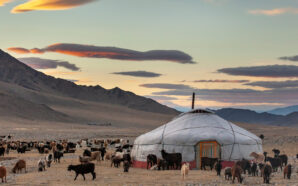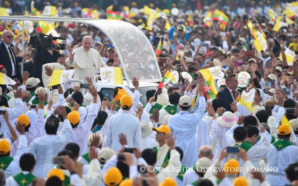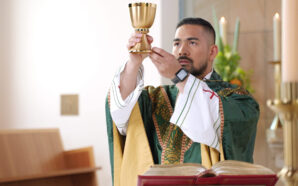The Holy Year Jubilee of Hope (2025) draws from three key themes in Scripture: Jubilee; Pilgrimage, and Hope itself.
Jubilee
The remote origins of the Holy Year that the Church celebrates every 25 stem from a very attractive social institution in Israel. According to the Book of Deuteronomy (15:1–18) every seventh (“sabbatical”) year the land had to lie fallow and there had to be remission of all debts and release from the bond of slavery. The Book of Leviticus 25 went beyond this to prescribe that the 50th year (that is, seven times seven plus one) was to be a “great jubilee”: not only was there to be release from debt and slavery, but all land that had been alienated from a family or clan through hardship had to return to its original owners. These two very humane institutions ensured that no family was trapped for ever in an endless cycle of poverty and bondage; everyone got a fresh start. We can imagine how different our world would be if practices like this were still in place today.
Beginning his ministry in Nazareth according to St Luke (Luke 4:16–22), Jesus picks up the sense of “release from debt” involved in this requirement of the jubilee and applies it metaphorically to the “year” of release from the debt of sin that he is about to proclaim and enact in his ministry: the “year of the Lord’s acceptance” (v. 19).
Of course, the “year” that Jesus was inaugurating at Nazareth did not cease with his death. Through the power of the Holy Spirit it continues in the ministry of the Church. The reconciliation with God that Jesus brought into the world is there for us to access at all times, not just in a holy year. What the Jubilee provides is a special impetus to take advantage of this ever present outreach of God’s grace and mercy.
Pilgrimage
From its beginnings in medieval times, pilgrimage—especially to Rome—has been central to the holy year celebration. The Christian practice of pilgrimage has its origins in the regular pilgrimages that devout Israelites (the family of Jesus included [Luke 2:41]), made to the temple in Jerusalem. Many of the Psalms are in fact songs sung by pilgrims as they made their (often dangerous) way “up” to the holy city. Particularly attractive are some lines from Psalm 83 (84) in this respect:
They are happy, whose strength is in you,
in whose hearts are the roads to Sion.
As they go through the Bitter Valley they make it a place of springs (vv. 5–6 [Grail version]).
The “bitter valley” is presumably some particularly barren or dangerous part of the journey. Life is indeed a bitter valley for many people. The psalm seems to suggest that something of the hope that pilgrims have because “in their hearts are the roads to Sion” rubs off on those they meet along the way; they turn the bitter valley into “a place of springs” for them.
For believers, life is not just one day after another without pattern or purpose. For us, life is a journey, a journey that began in God and will end in God. In this sense we are all pilgrims with hope in our hearts. The Jubilee reminds us of that.
Hope
Finally, let us consider hope itself. Pope Francis in this connection, right at the beginning of his Letter promulgating the Jubilee, cites a phrase from a key sentence of St Paul:
and hope does not disappoint us, because God’s love has been poured into our hearts through the Holy Spirit that has been given to us (Rom 5:5).
For Francis, as for Paul himself, hope does not rest on a conviction that the external circumstances of our life are on the improve. Hope often, as particularly today, has to confront the likelihood that such things may get worse or at least stay the same. For Paul hope is the gift of the Holy Spirit. The experience of the Holy Spirit engenders hope because what it communicates is the sense that we are loved by God and that nothing can separate us from that love. Towards the end of chapter 8 of Romans Paul in fact lists a number of things that might well be thought to bring about such separation and then defiantly rejects that possibility in every case (8:38–39).
Ultimately, then, hope, like faith and love, is a gift, a gift of God, for which we must pray.
Those who go on pilgrimage to Rome for the Jubilee of Hope will personally put into practice all three aspects mentioned above: the jubilee; the pilgrimage; hope itself. But because all are so central to Christian life even those of us who remain at home can become pilgrims of hope.
Brendan Byrne, SJ (DPhil, Oxford), is professor emeritus at the University of Divinity in Melbourne, Australia, and a member of the Australian Academy of the Humanities. He taught New Testament for over four decades at Jesuit Theological College and has been a former member of the Pontifical Biblical Commission.
This article was originally published in the 2025 Lent & Easter | Autumn edition of the Catholic Outlook Magazine. You can read the digital version here or pick up a copy in your local parish.








